- Home
- Lauren Blakely
Playing With Her Heart Page 2
Playing With Her Heart Read online
Page 2
But already I feel a hitch in my throat, and I fight back a tear. I don’t want to cry over a role, but at the same time I worked so hard on this audition and it felt like the chance of a lifetime. The chance that seemed as if it could truly be mine. “I felt so thoroughly Ava, almost as if the character had possessed me. I swear I could read it on the director’s face too. The way he stood up after I sang, like I was his Ava. I could have sworn it was my role just from the way he looked at me. And then she walked in.”
“Hey,” he says, and pulls me in for a quick hug. I let one more tear fall against his shirt, as he pets my hair. “Sometimes you nail an audition and lose out. Sometimes you flub one and still get a role. And sometimes you do your damn best, and you beat out a star. You never know. The only thing you can do is leave it all on the stage, and I’m sure you did. I know you. You’ve never given less than 100 percent of your heart and soul in any rehearsal, let alone a performance.”
I breathe deeply and nod, then grab a tissue from my purse and swipe the errant tear from my cheek.
“C’mon. I’m a big-time film actor now,” he jokes, but there’s some truth to it since he landed a starring role in Escorted Lives. “Let me buy you a coffee.”
He leashes up the dog and we wander over to a pretzel vendor who’s now hawking espressos, lattes and coffees too, and order some hot beverages to stay warm on this chilly day. I do my best to seem upbeat, even though I know my phone will soon be ringing with the ‘Better luck next time’ call from my agent.
Reeve breaks off a piece of the pretzel to give to the tiny dog, who stands on his little back legs to snag the bite.
“Are you a full-time dog nanny for The Artful Dodger now?”
Reeve laughs. “What can I say? He’s kind of an awesome dog, so I like hanging out with him. And it makes Sutton happy to know he’s with me.”
“You’re so in love with her, it makes me sick,” I tease, even though I think it’s awesome that Reeve and Sutton are now officially together. I look at my watch, knowing I should head home. “We’re still running tomorrow, right?”
“Of course. I have to kick your ass.”
“You wish.”
I walk away, thinking of Reeve paired up with Sutton, and my roomie Kat now happily engaged to her long-time love, Bryan. Funny, how it’s been so long since I’ve even been with anyone—long as in years. Way longer than anyone thinks. Much longer than I let on. Acting isn’t just my job. It’s my whole damn life.
It’s the way I’ve learned to live with all my regrets from long ago.
CHAPTER 2
Davis
“She was brilliant, but it’s largely irrelevant.”
I press my thumb and forefinger against the bridge of my nose. I cannot believe I am having this debate. I cannot believe this suit is being such a…suit. It’s as if this production is run by accountants who don’t have a clue.
“Irrelevant?”
I look up, and direct the question to my executive producer, Don Kraftig, who’s sitting across the aisle from me in a pinstriped, double-breasted number that looks like he rented it from a Good Fellas close-out sale, a contrast to my jeans and long-sleeve button down. We’re in the St. James, the three of us: Don, Stillman and me. “How could it possibly be irrelevant? She’s tailor–fucking-made for this part. She’s Ava. Is there actually any question?”
My voice echoes around the cavernous auditorium that will be filled shortly with spectators for the final performances of The King and I, playing here before we take over. For now, the red chairs that become home at eight o’clock six nights a week to the buzz and hum of an audience are empty, except for us. The auditions are over. The callbacks are done. Patrick Carlson has left for the day, and we are sliding into the early evening with this debate.
My executive producer shrugs, an admission, or as much of one as I’ll ever get. “She was amazing,” he concedes, and his voice—it sounds like a tin can and I wish I could shake him, or really, shake some sense into him. “But she’s not Alexis Carbone.”
“That’s the point, Don. I don’t want Alexis Carbone. Alexis Carbone is a grade-A classic diva and a half. Not to mention she misses shows if she has so much as a sniffle.”
“All the better. She should rest her voice if she’s ill,” he says, and now he sounds prissy, and I would have half a mind to laugh if I wasn’t so damn angry.
Instead, I choose a different tactic. I try to speak in Don’s native tongue—dollars. “You know how she is. She missed one-third of her performances in Fate Can Wait. The running joke of the show was that it should be called Alexis Can Wait. Don’t tell me you’ve forgotten how many times theatergoers called the Logan Theater Company asking for refunds when she wasn’t performing,” I say, hoping that the reminder of how much money his competitors lost on Alexis’ last role will do the trick.
“We are not the Logans,” he says, folding his arms imperiously, as if that action can somehow distance himself from Alexis’ one Broadway flop. “That show was a mess. It had an awful title.”
“Yeah. It had a hideous title. But the point is we have a show that’s not a mess. Thanks to the incomparable Frederick Stillman—” I pause to gesture, dramatically, of course, to the bald, bespectacled theatrical genius next to me who has barely said a word because Stillman doesn’t have to speak, his work does the talking, “—and a show with a fantastic title, and score, and a sexy-as-hell storyline about love and loss and sex and art, the likes of which New York City hasn’t seen in years. Not since Rent. And you want to throw in a wild card? An actress who misses a performance if her cat has a hangnail?”
“She can open a show,” Don insists, and he might as well be digging his heels into the ground. He doesn’t get it. I’m ready to stalk on over to the stage and bang my head against the damn floor boards. Because that’s what talking to him's like. But he doesn’t stop speaking. “She has her own album, her solo concerts sell out, she was on that TV show about a Broadway musical, and she’s still regarded as the best damn Galinda in the last five years.”
I stand up, pace like a caged lion, walk to the side door exit to take a deep breath, then return to them. “Be that as it may. I don’t want to work with her. I want the best on stage for this. I want someone who is fresh and amazing and who is going to blow the audience away. I don’t want a diva. I want the next star. That woman. Jill McCormick. I want to read stories and see in Playbills for years to come that she got her first break, her first Broadway show, when she was cast as Ava in our show. She is going to be a star. I want to be the one who discovered her.”
“I want someone who is already a star.”
“We don’t need a star because we have the biggest star Broadway has ever seen—the newest Stillman show.”
I turn to Stillman. The stony look on his face gives nothing away. I dial back my anger, keeping my voice on the level. I respect Stillman far too much to talk to him as I talk to Don. “Mr. Stillman, you wrote this epic musical. You created this living, breathing, beautiful show. Who do you picture as your Ava?”
Stillman crosses then uncrosses his legs. He closes his eyes and hums while playing air piano in what I’m learning is his modus operandi of recalling actors, and replaying their performance in his mind. He opens his eyes.
“I want the Ava who will move the audience.”
I swallow, nod, and try again. Keep my voice soft, and calm, almost as if he’s a child. “Who would that be? Is that Alexis or Jill?”
Stillman stands up, smooths his pants legs. “I need to go to the little boys’ room.”
Then he walks out, and I believe I’ve just learned that Stillman might be a musical genius, but is passive aggressive as fuck. He has zero interest in decision-making or confrontations. I don’t possess that problem, so I return my focus to Don. “We need to start rehearsals in four weeks. The day after New Year’s. I would really like them to not suck.”
Don rises, reaches inside his jacket pocket, and removes a checkbook. “Does
the name Julie Taymor mean anything to you?”
The mere mention of a fellow director’s name is his power play and I know what’s coming. The threat he’ll dangle of a fate like hers.
Kicked off the show.
“The Spiderman producers were happy to let their director go,” Don says in a biting tone. “I have no problem paying your exit clause. How much was it?”
The man knows a thing or two about brinksmanship, and he’s got the upper hand. Because he’ll walk and I won’t. I want this job too much. “Fine. Call Alexis’ agent and give her the good news. I will, however, be choosing the understudy and my choice will be final. Is that clear?”
Don nods, and that’s our tacit compromise. It’s hardly a compromise, but even so I’ll be hoping Alexis has a whole lot of head colds.
Jill
As I head for the subway, I check my phone out of habit, an instinct that won’t die, a hope for good news. But there are no missed calls from my agent, so I try to review my to-do list along the way, ticking off the emails I need to send to the ladies in my running group, as well as the new training exercises I’ll put together for them as they prep for an upcoming breast cancer awareness 10K. Now that Crash the Moon is, sadly, in my rearview mirror, I suppose I’ll devote more time to coaching runners, maybe find some gals to help train for marathons and other races.
Besides, there will be other auditions, other shows…right?
I glance at the screen one more time as I head down the stairs into the busy Forty-Second Street station, pushing past hordes of rush hour New Yorkers. I reach the turnstile and am about to swipe my Metro Card through when I stop. There’s a poster advertising The King and I on the dirty, sooty wall on the other side. That’s the show playing in a limited run right now at the St. James, and I can’t help but feel a pang of longing. This is the exit I wish I were making every night at six-thirty. The one that would take me to that theater, where I’d be lucky enough to enter through the stage door, then drop my purse on the floor of a dressing room, and do my makeup in front of a mirror adorned with naked lightbulbs.
I’m not ready to wedge myself onto a crowded train, wrap my arm around a pole and head home. Tomorrow, I’ll be fine. Tomorrow, I’ll focus on what’s next. But right now, I want to walk past the theater one more time, to say goodbye to it, then move on to the next possibility.
“C’mon, we’re trying to get through,” someone mutters from behind me, and that’s my cue.
I walk away from the turnstiles and head above ground, joining the sea of people pouring out into the theater district.
It is dark now. Evening has fallen, and the lights on the St. James are lit up, a beacon that draws in young and old, tourists and residents who want to suspend disbelief for a show. I gaze at the marquee, bright as the sun against the night sky, and it’s such a perfect sight that it stills my heart every time. I have loved the theater fiercely and deeply for my entire life, both as a spectator and as an actress.
“Someday,” I whisper.
I turn to leave and I notice a man walking toward me, dressed in jeans, a button-down shirt that fits him well, neat and tailored and tucked in, hiding what I suspect is a perfectly flat set of abs. I consider myself something of an expert on abs, though that may simply be due to the screen saver on my laptop. My friend Ellie set it up for me. She made a collage from her Pinterest collection of beautiful carved men.
As for this guy, I can’t see his abs, obviously, since he’s wearing a shirt. But he looks familiar, and as I try to put the pieces together—the trim clothes, the strong jawline, the thick brown hair, and blue eyes so dark they’re nearly the color of midnight—I realize, he’s the director.
Davis Milo.
Fuck. I can’t think about his abs. I can’t appraise his body. I can’t look at him the same way I look at the men on my laptop. I must delete all tawdry thoughts from my brain.
Besides, I could barely see him in the seats with the stage lights blaring, but I can see him now, and he has the most intense look on his face as he practically pounds out a number on his cell phone. I watch him walking toward me, his head down, bent over his phone, and wonder if I should say hi, if he’d remember me from the audition. I didn’t interact with him much, but he’s legend, and he has the Midas Touch and he’s barely thirty years old. With a litany of hit shows on his resume, he’s known for impeccable taste and for the best eye in New York City. He’s discovered so many stars, but he rarely takes credit publicly. His acceptance speeches are gracious and generous, with credit always given to others. To top it off, he’s heart-stoppingly handsome and he has this brooding sense about him whenever I see his pictures. As if he rarely cracks a smile, so when he does you know it must be special.
A strange sort of awkwardness sweeps over me. I don’t know what to do or say in front of this man—if I should act friendly, or pretend I don’t see him. He’s the director—he might as well be called the Decider. My hands feel cold and clammy.
“I’m looking for M. J. Kim,” I hear him say, and I stop in my tracks. That’s my agent’s name.
I say something. I’m not sure if it’s a word or a squeak or a bark that comes out of my mouth. Davis looks up and, as if it’s occurring in slow motion, a grin forms on his lips. They’re nice lips. Soft and full, and utterly kissable.
From an empirical point of view, of course.
“Hi,” he says, and I think it’s both to me and to my agent on the phone. I smile. Dumbly. Should I keep moving? Walk around him? But my damn boots are glued to the ground because every muscle in my body is in a state of coiled tension. Is he calling my agent at six in the evening with good news or bad news?
“Kim, it’s Milo,” he says in a commanding voice, a deep, rich voice, and I wonder if he’s ever performed or sung. “I’m standing on Forty-Fourth street where I just bumped into the actress I want to cast in the chorus, but more importantly, as the understudy for my lead.”
Jet fuel ignites in me, and I take off for the moon.
I clasp a hand over my mouth, my eyes widen and then I am grabbing Davis Milo and hugging him hard. I pull him against me, and his phone clatters to the ground, and I hear my agent say ‘Hello, hello, hello,’ but I don’t care, because Davis Milo has given me my biggest fucking dream ever—and it’s a double whammy of amazingness. Not only have I booked my first Broadway show, I’ll have the chance to act with the man I’ve been in love with since the summer I turned seventeen—the worst year of my life that ended in the best way—when I saw Patrick Carlson on stage, and fell into a pure love, a perfect love, the way love should be.
CHAPTER 3
Davis
This woman is strong. Her arms are wrapped all the way around me, and she’s gripping me as if she won’t ever let go. For a second—okay, several seconds—I picture all the things that could happen next if she moved closer because her body feels fantastic against mine. I peel myself away because I’m not going to entertain a single thought about her that slips beyond the professional.
Directing a show is like Fight Club.
The first rule of directing is you do not fall for an actress. The second rule of directing is you do not fall for an actress.
But her hair smells ridiculously good, a pineapple scent that lingers in the cold December air as she breaks the embrace, and my hand twitches because I have a sudden instinct to twine my hands in her dark blond hair. I am steel, though, and I will not let the way she smells affect me, either as the director or as a man. Besides, I don’t date actresses anymore. Haven’t in years. I broke the first two rules of directing once before and have the battle-scarred heart to prove it.
She’s shaking. Or bouncing. Or bounce–shaking. A tear rolls down one cheek. Then the other. The whole time her smile could launch ships. It’s infectious, and that’s the problem. It’s working on me already. “This is the best thing that has ever happened to me professionally. Ever. Thank you, Mr. Milo.”
“Really. It’s just Davis.” I bend down to pi
ck up my phone from the sidewalk.
“Davis,” she says, as if my name is the sweetest word she’s ever uttered. Funny thing is, hardly anyone calls me Davis. Most of the actors I’ve worked with over the years have called me Mr. Milo. Most of the time I prefer that, too. You don’t call your doctor by the first name, nor your teacher, nor your director, as far as I’m concerned. But Davis just sounds right on her lips, so I find myself letting her use it.
“We’ve got a lot of work to do before the show opens. Rehearsals start in a month and you’ll be shadowing Alexis Carbone, who’s been cast as Ava,” I say, reverting to cool professionalism, though her reaction—so pure and genuine—to being the understudy melts a tiny piece of my icy business-like heart.
Some days, it seems as if there’s so much entitlement in this business. It’s nice to see a little gratitude.
As another tear rolls down her cheek, I correct myself quietly. A lot of gratitude. Then I do something entirely out of character. I swipe the pad of my thumb across her cheek to wipe away a tear. Her skin is soft to the touch. I could get used to this.
“Can I take you out for a drink or something? A coffee, or a bagel or a cookie, to say thank you?” She asks with the most hopeful look in her eyes, and I want to say yes. But that would be a huge mistake. She is off limits, according to every definition of the term. I can’t go there again.
“That’s not necessary.”
“Okay, so scratch that. Because the cookie thing sounded really lame. Can I take you out for milk and cookies?” she says in a sing-song voice, clearly making fun of herself. “And coffee! Argh. When did coffee become the thing of our world?”
“I don’t know. But it is. The thing of our world,” I say and a grin tugs at my lips. Her self-deprecating humor is far too alluring for my own good.
“Screw coffee. What if I bought you a drink to say thanks?”
“I swear you don’t have to take me out for a drink, Jill. I’m just happy you’re going to do the show.”

 Full Package
Full Package Winning With Him
Winning With Him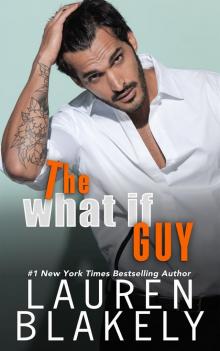 The What If Guy
The What If Guy My Sinful Love (Sinful Men Book 4)
My Sinful Love (Sinful Men Book 4)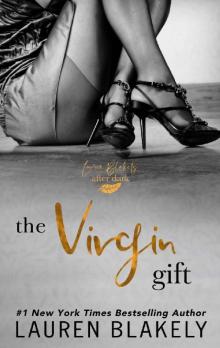 The Virgin Gift
The Virgin Gift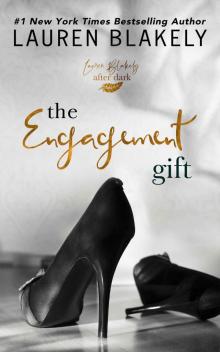 The Engagement Gift
The Engagement Gift The Break-Up Album
The Break-Up Album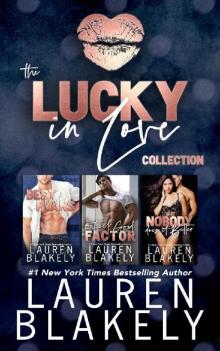 The Lucky in Love Collection
The Lucky in Love Collection Delayed Gratification
Delayed Gratification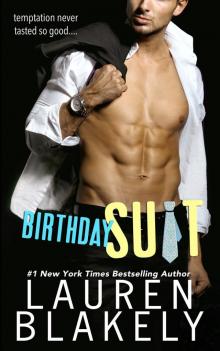 Birthday Suit
Birthday Suit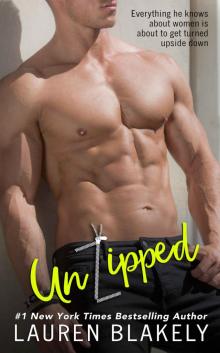 Unzipped
Unzipped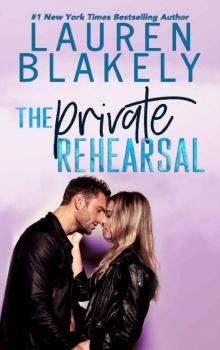 The Private Rehearsal (Caught Up In Love: The Swoony New Reboot of the Contemporary Romance Series Book 4)
The Private Rehearsal (Caught Up In Love: The Swoony New Reboot of the Contemporary Romance Series Book 4) Good With His Hands
Good With His Hands Special Delivery (Always Satisfied Book 5)
Special Delivery (Always Satisfied Book 5)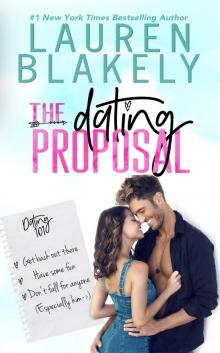 The Dating Proposal
The Dating Proposal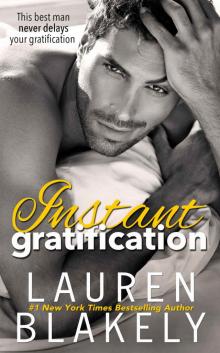 Instant Gratification (Always Satisfied Book 2)
Instant Gratification (Always Satisfied Book 2)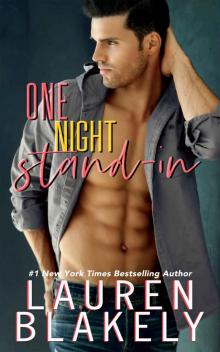 One Night Stand-In (Boyfriend Material Book 3)
One Night Stand-In (Boyfriend Material Book 3)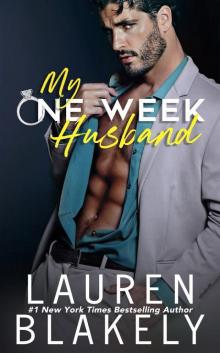 My One Week Husband
My One Week Husband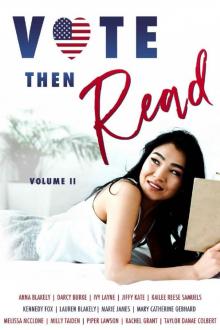 Vote Then Read: Volume II
Vote Then Read: Volume II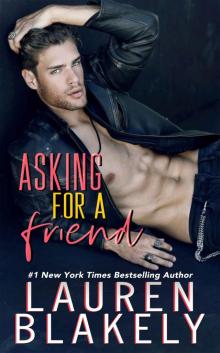 Asking For a Friend (Boyfriend Material Book 1)
Asking For a Friend (Boyfriend Material Book 1)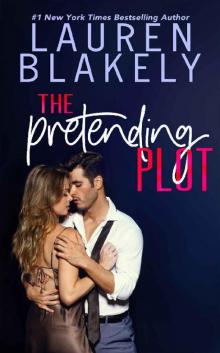 The Pretending Plot (Caught Up In Love: The Swoony New Reboot of the Contemporary Romance Series Book 1)
The Pretending Plot (Caught Up In Love: The Swoony New Reboot of the Contemporary Romance Series Book 1)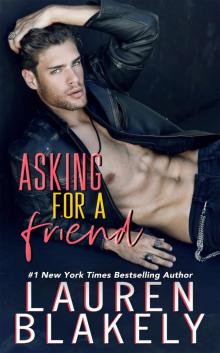 Asking For a Friend
Asking For a Friend Delayed Gratification: (Always Satisfied Book 2.5)
Delayed Gratification: (Always Satisfied Book 2.5)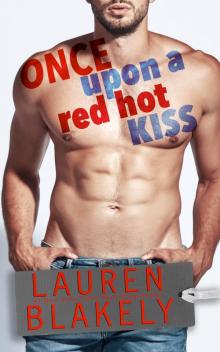 Once Upon A Red Hot Kiss
Once Upon A Red Hot Kiss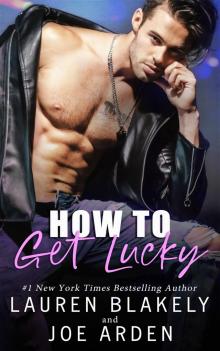 How to Get Lucky
How to Get Lucky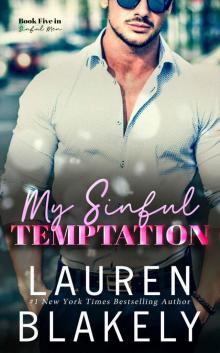 My Sinful Temptation (Sinful Men Book 5)
My Sinful Temptation (Sinful Men Book 5)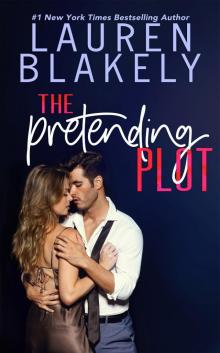 The Pretending Plot
The Pretending Plot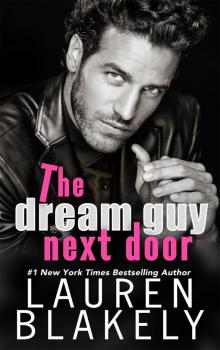 The Dream Guy Next Door: A Guys Who Got Away Novel
The Dream Guy Next Door: A Guys Who Got Away Novel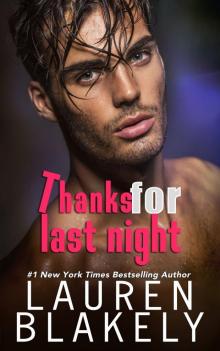 Thanks For Last Night: A Guys Who Got Away Novel
Thanks For Last Night: A Guys Who Got Away Novel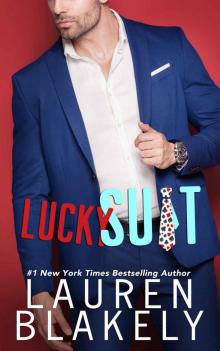 Lucky Suit (Sexy Suits Book 1)
Lucky Suit (Sexy Suits Book 1)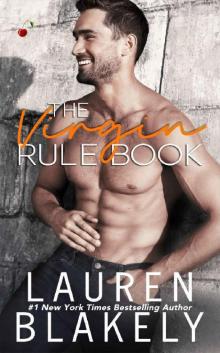 The Virgin Rule Book (Rules of Love 1)
The Virgin Rule Book (Rules of Love 1)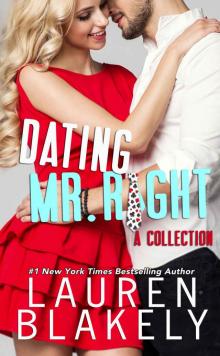 Dating Mr. Right: A Collection: Four Standalone Romantic Comedies
Dating Mr. Right: A Collection: Four Standalone Romantic Comedies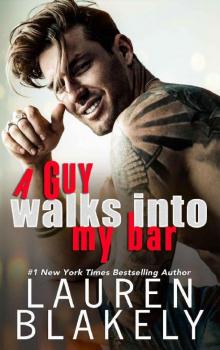 A Guy Walks Into My Bar
A Guy Walks Into My Bar PS It's Always Been You
PS It's Always Been You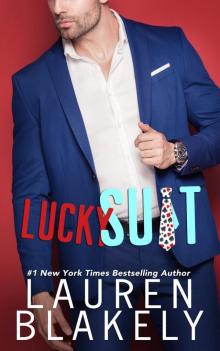 Lucky Suit
Lucky Suit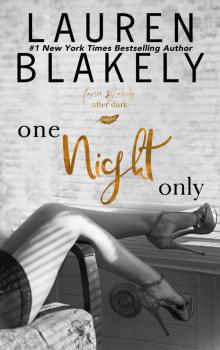 One Night Only: An After Dark Standalone in The Extravagant Series
One Night Only: An After Dark Standalone in The Extravagant Series Best Laid Plans
Best Laid Plans The One Love Collection
The One Love Collection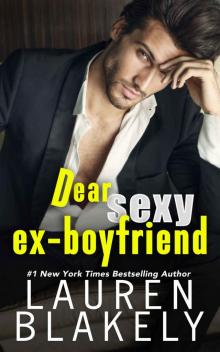 Dear Sexy Ex-Boyfriend (The Guys Who Got Away Book 1)
Dear Sexy Ex-Boyfriend (The Guys Who Got Away Book 1)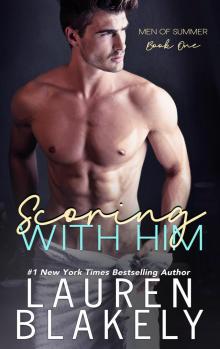 Scoring With Him
Scoring With Him The Second Chance Plan (Caught Up In Love: The Swoony New Reboot of the Contemporary Romance Series Book 3)
The Second Chance Plan (Caught Up In Love: The Swoony New Reboot of the Contemporary Romance Series Book 3)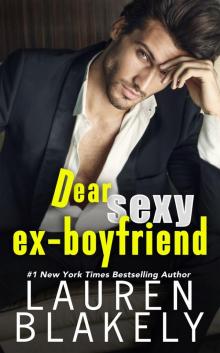 Dear Sexy Ex-Boyfriend
Dear Sexy Ex-Boyfriend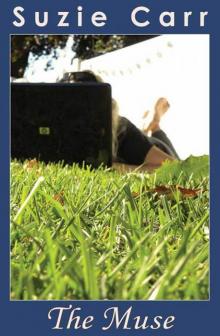 The Muse
The Muse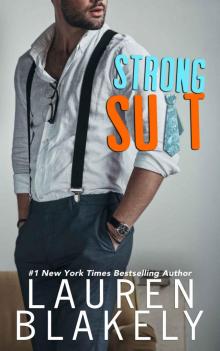 Strong Suit
Strong Suit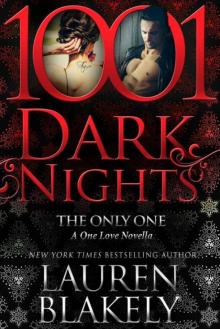 The Only One
The Only One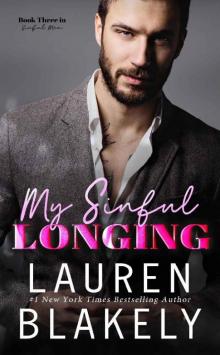 My Sinful Longing (Sinful Men Book 3)
My Sinful Longing (Sinful Men Book 3) The Rules of Friends with Benefits
The Rules of Friends with Benefits The Virgin Game Plan
The Virgin Game Plan P.S. It’s Always Been You: A Second Chance Romance
P.S. It’s Always Been You: A Second Chance Romance The Second Chance Plan
The Second Chance Plan Satisfaction Guaranteed: A Standalone Romance (Always Satisfied Book 1)
Satisfaction Guaranteed: A Standalone Romance (Always Satisfied Book 1)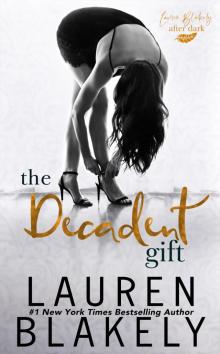 The Decadent Gift
The Decadent Gift A Wild Card Kiss
A Wild Card Kiss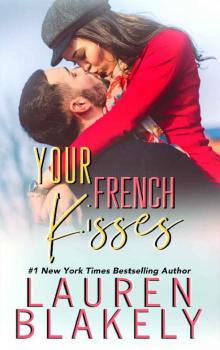 Your French Kisses (Boyfriend Material Book 4)
Your French Kisses (Boyfriend Material Book 4)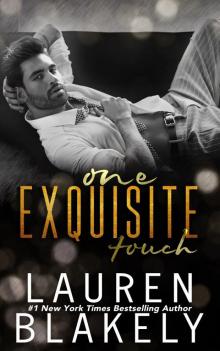 One Exquisite Touch: Book One in The Extravagant Series
One Exquisite Touch: Book One in The Extravagant Series Joy Ride
Joy Ride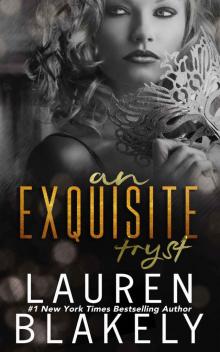 An Extravagant Tryst: A Prologue (The Extravagant)
An Extravagant Tryst: A Prologue (The Extravagant)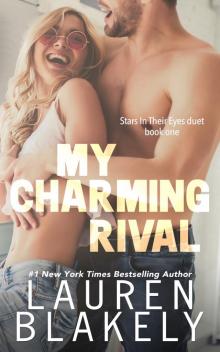 My Charming Rival
My Charming Rival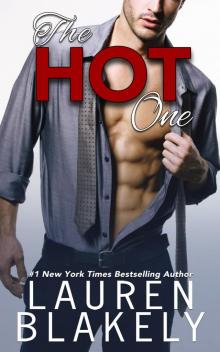 The Hot One
The Hot One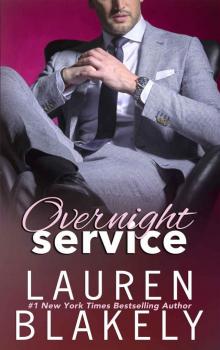 Overnight Service (Always Satisfied Book 4)
Overnight Service (Always Satisfied Book 4)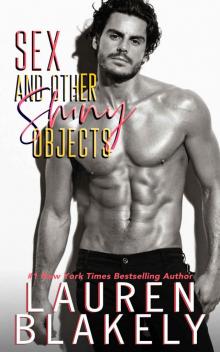 Sex and Other Shiny Objects (Boyfriend Material Book 2)
Sex and Other Shiny Objects (Boyfriend Material Book 2) The Seductive Nights Novellas
The Seductive Nights Novellas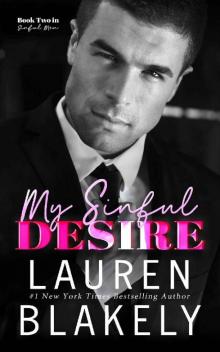 My Sinful Desire (Sinful Men Book 2)
My Sinful Desire (Sinful Men Book 2) A Wildly Seductive Night: (Seductive Nights: Julia & Clay Book 3.5)
A Wildly Seductive Night: (Seductive Nights: Julia & Clay Book 3.5)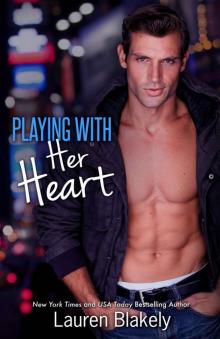 Playing With Her Heart
Playing With Her Heart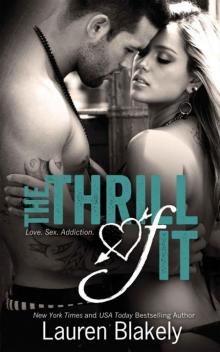 The Thrill of It
The Thrill of It Julia and Clay Plus One
Julia and Clay Plus One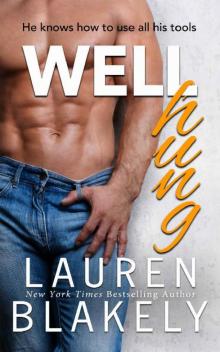 Well Hung
Well Hung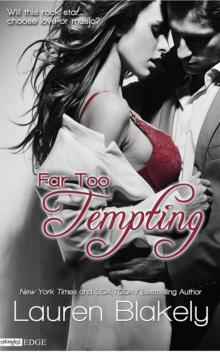 Far Too Tempting
Far Too Tempting Wanderlust
Wanderlust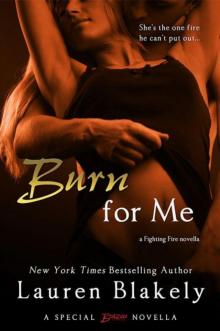 Burn for Me
Burn for Me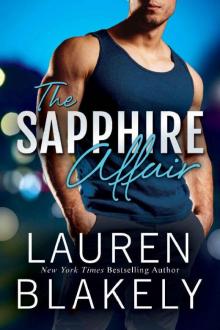 The Sapphire Affair (A Jewel Novel Book 1)
The Sapphire Affair (A Jewel Novel Book 1)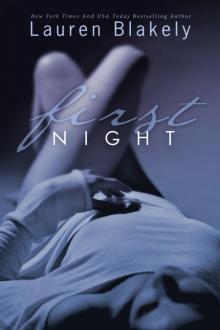 First Night
First Night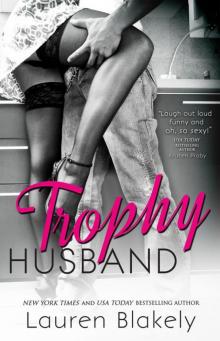 Trophy Husband
Trophy Husband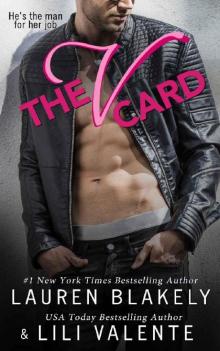 The V Card
The V Card Out of Bounds
Out of Bounds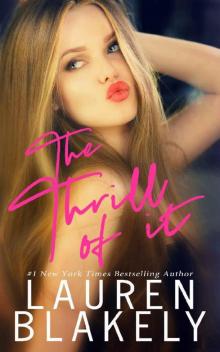 The Thrill of It (No Regrets Book 2)
The Thrill of It (No Regrets Book 2)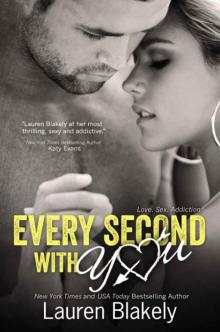 Every Second With You
Every Second With You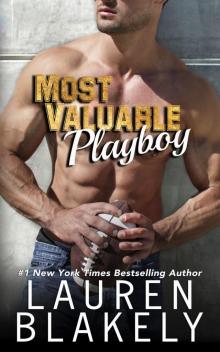 Most Valuable Playboy
Most Valuable Playboy Once Upon A Wild Fling
Once Upon A Wild Fling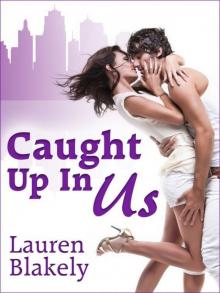 Caught Up In Us
Caught Up In Us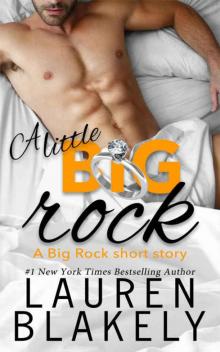 A Little Big Rock (Big Rock #0.5)
A Little Big Rock (Big Rock #0.5)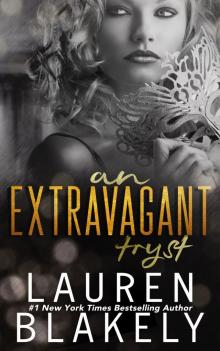 An Extravagant Tryst
An Extravagant Tryst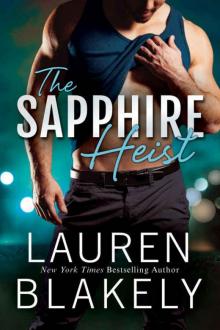 The Sapphire Heist (A Jewel Novel Book 2)
The Sapphire Heist (A Jewel Novel Book 2) Bigger Rock
Bigger Rock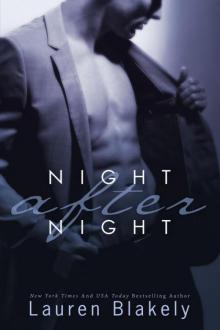 Night After Night
Night After Night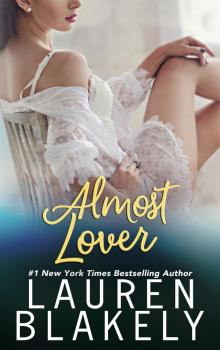 Almost Lover
Almost Lover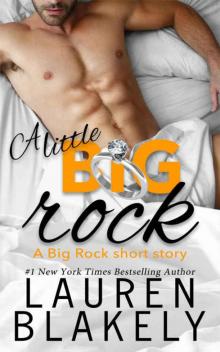 A Little Big Rock
A Little Big Rock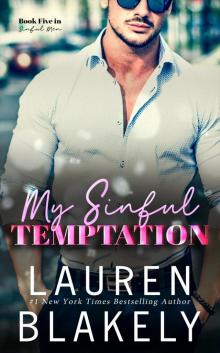 My Sinful Temptation
My Sinful Temptation The Sexy One
The Sexy One Sweet Sinful Nights
Sweet Sinful Nights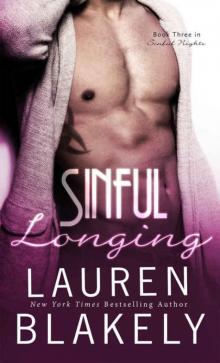 Sinful Longing
Sinful Longing Sinful Love (Sinful Nights #4)
Sinful Love (Sinful Nights #4)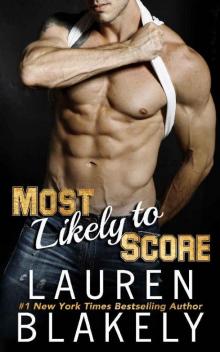 Most Likely To Score
Most Likely To Score Caught Up In Him
Caught Up In Him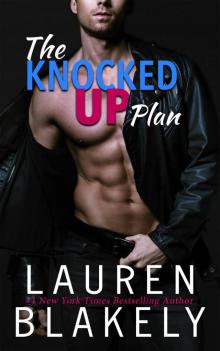 The Knocked Up Plan
The Knocked Up Plan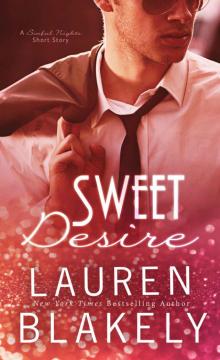 Sweet Desire: (A Sinful Nights Short Story)
Sweet Desire: (A Sinful Nights Short Story)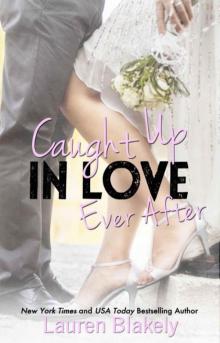 Caught Up in Love Ever After
Caught Up in Love Ever After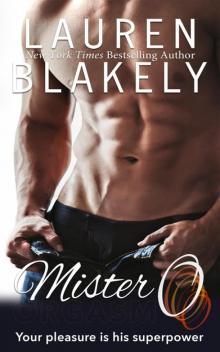 Mister O
Mister O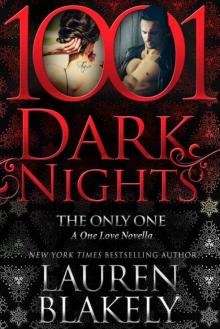 The Only One: A One Love Novella
The Only One: A One Love Novella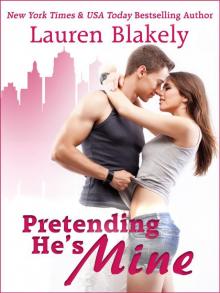 Pretending He's Mine
Pretending He's Mine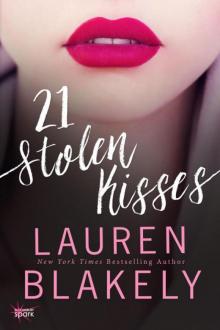 21 Stolen Kisses
21 Stolen Kisses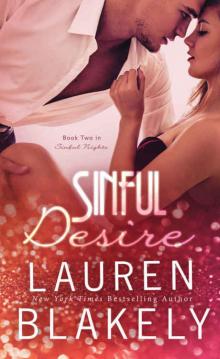 Sinful Desire
Sinful Desire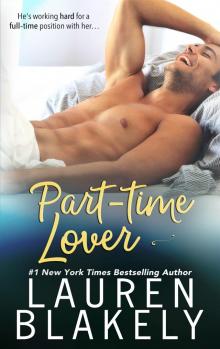 Part-Time Lover
Part-Time Lover Unbreak My Heart
Unbreak My Heart Forbidden Nights
Forbidden Nights Come As You Are
Come As You Are Consumed By You
Consumed By You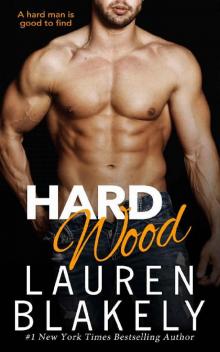 Hard Wood
Hard Wood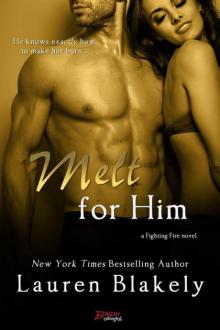 Melt For Him
Melt For Him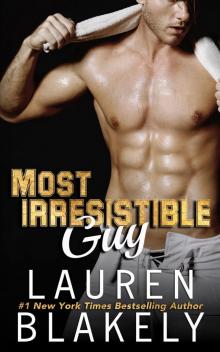 Most Irresistible Guy
Most Irresistible Guy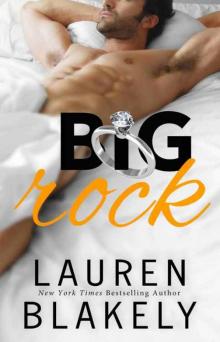 Big Rock
Big Rock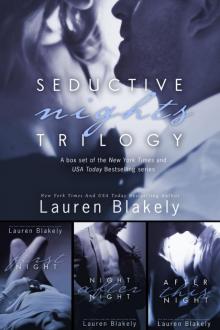 Seductive Nights Trilogy
Seductive Nights Trilogy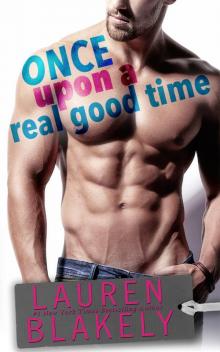 Once Upon a Real Good Time
Once Upon a Real Good Time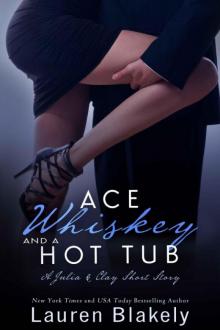 Ace, Whiskey and a Hot Tub
Ace, Whiskey and a Hot Tub Stud Finder (1001 Dark Nights)
Stud Finder (1001 Dark Nights)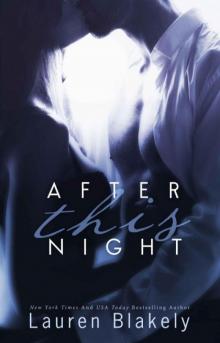 After This Night
After This Night